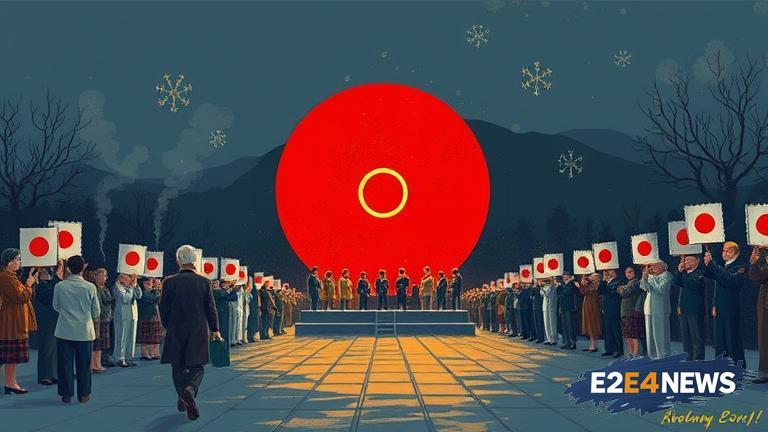Eighty years have passed since the devastating atomic bombings of Hiroshima and Nagasaki, and Japan is still coming to terms with the aftermath. The bombings, which occurred on August 6 and 9, 1945, respectively, resulted in the loss of hundreds of thousands of lives and left many more suffering from the effects of radiation. In recent years, Japan has been working to recognize and support the victims of the bombings, including those who were affected by both blasts. These individuals, known as ‘double atomic bomb victims,’ have been fighting for recognition and compensation for their suffering. The Japanese government has established a number of programs and services to support these victims, including medical care and financial assistance. Despite these efforts, many double atomic bomb victims still face significant challenges, including ongoing health problems and social stigma. The Japanese government has also been working to preserve the history of the bombings and to promote peace and nuclear disarmament. This includes the creation of museums and memorials, as well as educational programs and international diplomacy. The city of Hiroshima has become a symbol of peace and nuclear disarmament, with the Hiroshima Peace Memorial Park and Museum serving as a reminder of the devastating effects of nuclear war. The park and museum attract millions of visitors each year, and serve as a powerful reminder of the importance of promoting peace and nuclear disarmament. In addition to these efforts, Japan has also been working to support the survivors of the bombings, known as hibakusha. These individuals have been fighting for recognition and compensation for their suffering, and have been working to preserve the history of the bombings. The hibakusha have also been actively involved in promoting peace and nuclear disarmament, and have played a key role in raising awareness about the dangers of nuclear war. Despite the many challenges they have faced, the hibakusha remain committed to their mission of promoting peace and nuclear disarmament. The Japanese government has also been working to promote international cooperation on nuclear disarmament, and has been actively involved in a number of international initiatives. This includes the Treaty on the Prohibition of Nuclear Weapons, which was adopted by the United Nations in 2017. Japan has also been working to strengthen its relationships with other countries, including the United States, and has been actively involved in a number of international diplomatic efforts. The country has also been working to promote economic development and cooperation in the region, and has been actively involved in a number of international trade agreements. In recent years, Japan has also been working to address the issue of nuclear power and its role in the country’s energy mix. This has included the development of new nuclear power plants, as well as the implementation of safety measures to prevent accidents. The country has also been working to promote the use of renewable energy sources, such as solar and wind power. Overall, Japan’s efforts to honor the double atomic bomb victims and to promote peace and nuclear disarmament are an important reminder of the devastating effects of nuclear war and the importance of working towards a more peaceful and secure world. The country’s commitment to preserving the history of the bombings and to supporting the survivors is a powerful testament to the enduring impact of these events. As the world continues to grapple with the challenges of nuclear proliferation and disarmament, Japan’s efforts serve as a reminder of the importance of promoting peace and cooperation. The country’s experience serves as a powerful warning about the dangers of nuclear war, and highlights the need for continued international cooperation and diplomacy. In the years ahead, Japan will continue to play a key role in promoting peace and nuclear disarmament, and will remain committed to honoring the victims of the atomic bombings.





